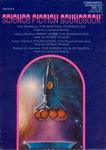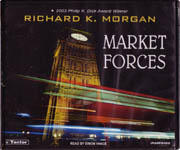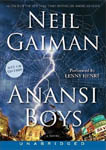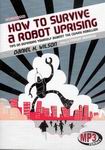
 Look to Windward
Look to Windward
By Iain M. Banks, read by Robert Lister
10 Cassettes – Approx. 14.25 Hours [UNABRIDGED]
Publisher: Clipper Audio
Published: 1990
ISBN: 1841971839
Themes: / Science fiction / Aliens / Space Travel / War / Afterlife
Civil war has taken its toll on a planet called Chel, whose furry predator-descended people live in a strict caste-based society with an exacting religion. One of them, a famous composer named Ziller, has disowned his home world to live on a Culture orbital called Masaq’. He lives in crusty happiness among the humans and formerly human machines there, composing, exploring, and attending dinner parties. But word has come of a second Chelgrian, a former soldier and monk named Quilan, who appears determined to persuade him to return to Chel. The Culture are partially responsible for instigating the Chelgrian civil war, and it may be that Quilan has a deeper mission that even he knows nothing about.
This is the compelling lead-in to Iain M. Banks’ novel Look to Windward, but it is far from the whole story. The novel takes us far into the future of humanity, across the astoundingly large artificial surface of Masaq’, down deep voids of space on a series of amusingly named spacecraft, through the bitter civil war on Chel, and even into the belly of a large, atmosphere-containing being and the enormous blimp-like life forms inside it. The range of emotion is similarly grand, beginning with a harrowing descent into the war and its aftermath, segueing into an amusing and confusing dinner party, and setting off into stirring adventure and philosophical discussions of risk, war, love, life and death.
This is an introspective novel, and its most involving aspects unfold almost entirely in dialog. Such dependence on conversation demands an author who can produce interesting, distinct, and consistent voices for the various characters. Iain Banks delivers in spades, and Robert Lister interprets his dialog with near-perfection (the notable exception is Kabe, who sounds like a B-grade Igor). Hearing Ziller’s profane peevishness, Quillan’s calm hopelessness, and even Colonel Hyler’s avuncular old war-horse is like perceiving the characters in extra dimensions. In particular, there is a discussion late in the book between Quillan and Hyler that, while horrifying in topic, is presented with such remarkable tenderness that I found it one of the most outstanding scenes of fiction I’ve ever heard.
Look to Windward is part of a larger series of Culture novels, but don’t let that scare you off. I haven’t read any of the others, and you won’t be required to, either. If you like a thoughtfully-paced interplay of characters and ideas in a futuristic but oddly British setting, then you will love this book. And, like me, you’ll soon be trying to get your hands on more.
Posted by Kurt Dietz


 Ringworld
Ringworld
